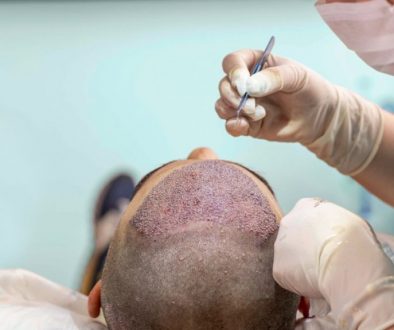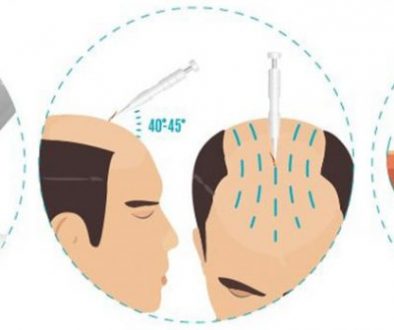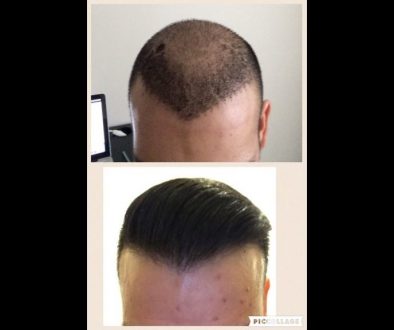What is the ABHRS (American Board of Hair Restoration Surgery?
This insightful article was written by Patrick Hennessy, the Publisher of the Hair Transplant Network, the Hair Loss Learning Center, and the Hair Loss Q&A Blog
Both hair transplant patients and ethical hair transplant physicians share the common goal of elevating the standards of the hair restoration profession. While this patient based community provides a discussion forum for sharing and analyzing real results and the physicians who provide them, many physicians have worked to establish educational standards for the hair transplant profession.
The most prominent effort by physicians to set standards and criteria for state of the art hair transplantation and practices has been the American Board of Hair Restoration Surgery (ABHRS) . This non profit organization is managed by hair restoration physicians and certifies physicians as “Diplomates” after they successfully demonstrate a high degree of knowledge about current hair transplantation by passing an extensive written and oral examination.
Dr. Bernie Nusbuam, who is a very respected member of the Coalition of Independent Hair Restoration Physicians, will be assuming the Presidency of the ABHRS. I asked him to provide our community with more information about the ABHRS certification process and what it means. As he himself states, the ABHRS certification does not insure competence. But it does at least certify that ABHRS Diplomates have a demonstrated high level of understanding of current hair transplantation techniques and practices.
The information Dr. Nusbuam provided to me is presented below:
American Board of Hair Restoration Surgery (ABHRS) Update
As a Coalition Physician and the incoming president of the ABHRS, I would like to inform the members of this community about this organization. Ten years ago, representatives from societies whose members perform hair restoration surgery (the American Academy of Cosmetic Surgery, the International Society of Hair Restoration Surgery, the American Academy of Facial Plastic and Reconstructive Surgery and the American Society of Dermatologic Surgery) established their commitment towards a process which would measure physicians’ knowledge with regard to the safe and aesthetically sensitive practice of hair restoration. Their goal was to create a relevant, credible, unbiased examination that would help the profession and the public identify physicians who had attained a particular fund of knowledge in this regard. These founders selected a group of experienced hair transplant surgeons who were granted AB HRS certification and composed the first written and oral examinations which were administered in 1997. Since then, with the help of physicians who have passed the exam, a yearly oral and written examination has been developed and administered under the direction of a psychometric consultant (a Ph.D. who specializes in examining the reliability of standardized tests).
The written examination consists of 200 questions and the oral examination presents the candidate with three difficult cases in front of two examiners. Topics covered include not only general principles and surgical technique, but , among others, proper aesthetics, repair techniques, medical therapy, management of complications, safe administration of anesthesia, identification of hair loss diseases that should not be transplanted as well as emergency management in the hair transplant setting. To date, 124 candidates representing 12 countries have been certified (given Diplomate status). Board certificates are time- limited, meaning that Diplomates, (including those who wrote the original test and did not take the examination) have to recertify every 10 years with strict Maintenance of Certification requirements in order to maintain their certification status. These requirements involve: 1) maintaining an unrestricted medical license and notification to the board of any current or past disciplinary actions 2) continuing medical education of at least 100 hours every three years of which 50% must be specifically hair related 3) passing a recertification exam (the first recertification exam is being given in September of this year and I will be one of the Diplomates who passed the exam in 1997 and will be taking the recertification exam this year) and 4) evaluation of practice performance by providing patient records for peer review.
The ABHRS has also implemented regulations about how Diplomates can present their certification status in advertising or promotional materials. Diplomates have to comply with their local and state medical board regulations and cannot embellish their certification in any way. Diplomates who have misused their certification status in this regard have received notification demanding that they stop, or otherwise forfeit their certificates.
There was some initial negativity towards the ABHRS and some criticism still exists. Some feel that the term “Board” was not a good choice because the ABHRS is not an ABMS (American Board of Medical Specialties) recognized board. Perhaps “subspecialty certificate” would have been a better choice but at least “board certification” is a term that everyone understands. Examples of ABMS recognized boards are the American Board of Dermatology, the American Board of Plastic Surgery and the American Board of Facial Plastic and Reconstructive Surgery. The ABMS system involves a minimum three year residency program and a subsequent examination. In a residency program, faculty members can evaluate a candidate for three years or more prior to the examination process. Unfortunately, at the present time, there are no residency programs devoted to hair restoration that can train and produce a competent hair restoration surgeon. In addition, there are no ABMS boards with an examination dedicated to hair restoration. I should mention that meetings have taken place with the ABMS and the American Board of Dermatology to discuss board certification in hair restoration surgery that would be ABMS recognized. While this may never be achieved, initial discussions were encouraging and efforts towards this goal will continue.
A responsible field should stimulate its members to reach a higher educational level and knowledge base and then identify these physicians to the public .Since we do not have this option through the ABMS, the ABHRS is the best possible solution at this time. I have great respect for many of my colleagues who are excellent surgeons and leaders in the field of hair restoration who may or may not be certified by an ABMS board and do not feel the need to take the ABHRS exam. Many of us, however, who are ABMS board certified in other fields, felt that, achieving ABHRS certification was an important way to demonstrate our dedication and commitment to our patients and to the field of hair restoration. I can frankly state that the extensive time that I spent studying and preparing to take the ABHRS exam was one of the most rewarding educational experiences during my 25 year career with respect to gaining knowledge in this field and becoming a well-rounded hair restoration surgeon.
Does ABHRS certification insure competency? Absolutely not! Also, as I mentioned earlier, there are top-flight physicians who are among the best hair restoration surgeons who are not ABHRS certified. Interestingly, 24 of the recommended surgeons on this site are ABHRS certified and 8 of us sit on the ABHRS Board of Directors. In 2005, the ISHRS, which is the largest educational society in hair restoration, conducted a survey of its members who were NOT ABHRS certified. With a 30% response rate, 70% of the responders felt that board certification is important to the field of hair restoration surgery and 72% indicated that they would like to be certified. 90% indicated the ABHRS is trying to serve the public and the profession.
Just as the ISHRS provides the educational “arm” of this field, the ABHRS, through its efforts in providing a credible examination, serves as one component of the overall process and goal which we are all striving towards , that is, to improve the quality of our results and, in turn, help prospective patients.
Thank you,
Bernard Nusbaum, M.D.
—
Bill
Associate Publisher of the Hair Transplant Network and the Hair Loss Learning Center
View my Hair Loss Weblog
Technorati Tags: hair transplant patients, hair transplant physicians, hair restoration, hair transplant profession, hair transplantation, ABHRS, ABHRS Diplomates, American Board of Hair Restoration Surgery, Coalition Physician, hair restoration surgery, American Academy of Cosmetic Surgery, International Society of Hair Restoration Surgery, American Academy of Facial Plastic and Reconstructive Surgery, American Society of Dermatologic Surgery, hair loss, ABMS, American Board of Medical Specialties, board certification, hair restoration surgeon, ISHRS



